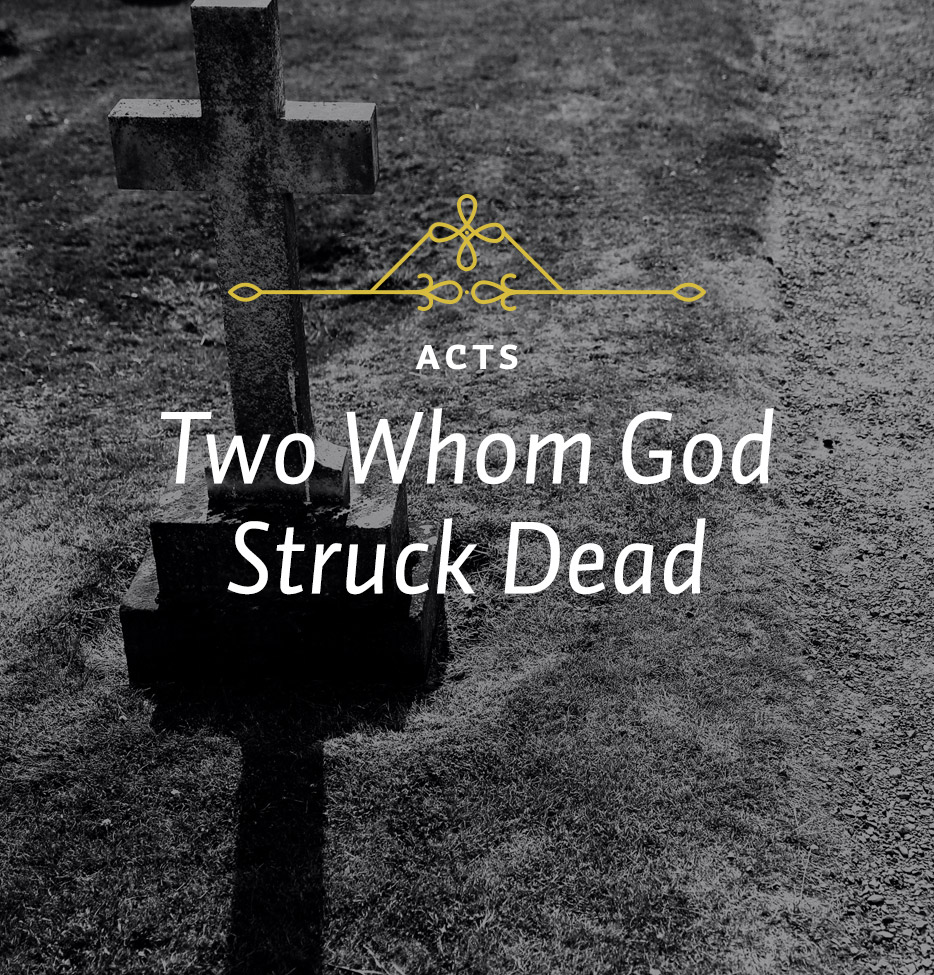The last part of the story concerns Sapphira, Ananias’ wife. It is important not to forget her, because she bore a full measure of guilt and responsibility. Luke points out her guilt in two ways. In verse 2, he adds the phrase, “with his wife’s full knowledge.” Then, after Ananias had been judged, he notes that she repeated her husband’s lie.
When you and I do wrong things, or when our culture does wrong things, we work hard at shunning responsibility, usually by some form of determinism. “Determinism” means that some outside factor has made us do what we did and, therefore, we are not responsible. One form of this is environmental. “I am what I am, because that is how my parents raised me,” we say. Or, “It is because I grew up in a particular neighborhood,” or “because when I went to preschool at a young age, somebody didn’t treat me properly.”
There is also a determinism that is personal. We excuse ourselves on the basis of our genetic structure. We say, “I’m just made like that. There is nothing I can do about it.” In this way we excuse bad temper, lying, or whatever else it may be. The problem with these excuses is that we use them for ourselves but disallow them in the case of other people.
A little boy once said to his mother, “Mother, why is it that whenever I do something wrong, it’s because I am a bad boy; but whenever you do something wrong, it’s your nerves?” The mother was recognizing that her son was a creature made in the image of God and was responsible for what he did. But in her case, she excused her bad behavior by her genes.
When we blame somebody else for our conduct, in the final analysis the person we are actually blaming is God. If you try to excuse yourself on the basis of your environment, well, God is ultimately the one who is responsible for the environment, isn’t He? If you appeal to internal factors, well, God caused those. God created your genes. Whenever you try to excuse yourself for some wrong behavior, you are actually attempting to shift the blame for your sin to God.
But that will not do. Sin is still sin. God is not its cause. And in the end God will judge it.
Let me point out that when we talk about God’s judgment on Ananias and Sapphira, who so far as we know were believing people, we are not saying that God consigned them to hell. True Christians do not lose their salvation by sinning. The punishment of Ananias and Sapphira, though extreme, was for this life only. Still, it was serious. And what it teaches is that God is not indifferent to His people’s sins. Peter wrote in his first letter, possibly remembering this incident, “It is time for judgment to begin with the family of God; and if it begins with us, what will the outcome be for those who do not obey the gospel?” (1 Pet. 4:17). Peter knew that the church in his day was far from perfect and that God judges sin.
It is worth noting that the first occurrence of the word “church” in the book of Acts is at the close of this story, where we read, “Great fear seized the whole church and all who heard about these events” (v. 11). “Church” translates the Greek word ekklesia, and it refers to a gathered community or fellowship, which is what these early Christians were. This community is always under attack by Satan. But his attacks are not always from without. They are often from within, which was the case here. The lies of Ananias and Sapphira harmed the church’s fellowship. Therefore, God moved through Peter to arrest the deception in an unforgettable and even frightening way.






